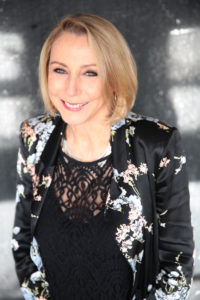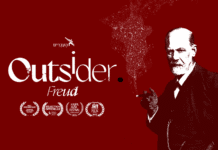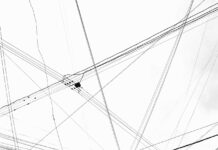During the Otto Fenichel and His Legacy Conference in Prague in October 2017, we had a chance to meet some of the most prominent contemporary psychoanalyst. One of them was Rosine Perelberg, who kindly agreed to answer some of our questions about society, culture and of course psychoanalysis. In this first part, dr. Perelberg answers question about psychoanalysis contribution to historical and socio-economic events. Dr. Perelberg states, that most of what she says is quoted from her book Murdered Father, dead father: revisiting the Oedipus Complex.
Has psychoanalysis a contribution to offer to historical and socio-economic events?
Throughout his work Freud attempted to link the individual and the social. In an attempt to give universal validity to his theories, Freud linked them to various aspects of culture, such as social events, the history of ideas, Greek myths, literature, philosophy, linguistics, anthropology and neurology, in terms of the prevailing ideas of his time. These wider aspects of culture were used as metaphors, it seems to me, to give depth or greater validity to the ideas Freud was creating, discovering, and constructing. Sometimes he allowed contradictory ideas to co-exist side by side.
From the range of ideas that Freud put forward that are relevant to an understanding of society and culture, I wish to select the works that led to my elaboration of the distinction between the murdered (narcissistic) father and the dead father in a series of papers that can be found in pepweb. In murdered father configurations the individual is not able to conceive of the role of the father in the primal scene. In dead father configurations the paternal function is more clearly established. I have made use of this distinction to understand works of art, music, literature and also historical events. I quote below sections from my book Murdered Father, dead Father: revisiting the Oedipus complex.
In Totem and Taboo, Freud puts forward a foundation myth of the origins of culture. He described the primal parricide committed by the original horde who killed and devoured their father, who had possessed all the women and ruled through terror. This murder was followed by remorse and guilt (as the sons both hated and loved their father). Moreover, although the brothers had been able to get together in order to kill their father, they were now faced with a situation in which each of them wanted all the women for himself. In order to prevent their own destruction, they instituted the law of incest, denying themselves sexual access to their mother and sisters. This prohibition inaugurated exogamy and reciprocity and represents the beginnings of society.
The killing of the father brings the realization that this renunciation and sacrifice needs to take place if society is to survive. It lies at the origins of the social contract: the unconscious nucleus of all religions becomes the “parental complex”, with the stress on ambivalent feelings of love and hate towards the father. Freud argues that this is the beginning of society, culture and religion. Many years later, when he wrote about Moses, Freud would indeed state: “Religions might have been invented as antidotes to man’s murderous desires”).
The dead father, now constituted as a symbolic father, however, was more powerful than he had been while alive, and as the possessor of the phallus he is the representative of the ego ideal and of the law (prohibition):
The dead father became stronger than the living one had been – for events took the course we so often see them follow in human affairs to this day. What had up to then been prevented by his actual existence was thenceforward prohibited by the sons themselves, in accordance with the psychological procedure so familiar to us in psycho-analysis under the name of “deferred obedience”. They revoked their deed by forbidding the killing of the totem, the substitute for their father; and they renounced its fruits by resigning their claim to the women who had now been set free. (Freud, 1912–13, p. 144)
The notion of narcissistic father, in the way I have developed it, can be connected with any social situation where one identifies an abuse of power and the violation of the rule of law.
In the last chapter of my book I coined the notion of the “murder of the dead father“ to characterize the Holocaust.
Violence takes place within a complex web that connects historical, social and psychological variables, and the psychoanalyst can address it only from one specific perspective. Although Freud’s second theory of drives indicated the potential for violence in each human being, we are still left with questions about the specific political, economic and historical conditions of existence that allow violence to take a legitimate institutionalized form at any specific moment in time.
Do the concepts of the death instinct and the negative aid our understanding of Auschwitz and that which is at the limits of the capacity to be represented? Eli Wiesel said that “Auschwitz cannot be explained nor it can be visualized.”
In light of the themes developed in my book I have now come to think that in the unthinkable reality of the camps, in the acts that lead to the “demolition of a man” (Primo Levi), the aim is the destruction of the rules of genealogy and filiation to both mother and father that establish the social and give rise to personhood. The rule of absolute power, the destruction of any sense of maternal care and paternal rules, ultimately leads to the creation of the abject, the abolition of maternal and paternal functions, time and space dimensions, and any sense of a future.
Barbara Creed writes:
The place of the abject is where meaning collapses, the place where I am not. The abject threatens life, it must be radically excluded from the place of the living subject, propelled away from the body and deposited on the other side of an imaginary border which separates the self from that which threatens the self. (1993, p. 65)
The question of what conditions allow it to express itself in such horrific and unimaginable ways characteristic of the Holocaust, however, needs to be examined in conjunction with other disciplines such as history, sociology and political science. Philosophy, literature and art as well as the work of contemporary psychoanalysts have addressed the challenges of finding ways of representing and keeping alive the memory of something that challenges traditional ways of representation.
 Rosine Jozef Perelberg is a Training Analyst of the British Psychoanalytic Society, Visiting Professor in the Psychoanalysis Unit at University College London and Corresponding Member of the Paris Psychoanalytical Society. Previously she did a PhD in Social Anthropology at the London School of Economics. She has published widely in international scientific journals. Her books include Dreaming and Thinking; Freud: a Modern reader, and The Greening of Psychoanalysis: Andre Green ‘s new paradigm in psychoanalytic theory and practice (2017, with Gregorio Kohon). She is the author of Time, Space and Phantasy (2008) and Murdered Father, Dead Father: Revisiting the Oedipus Complex (2015).) Psychic Bisexuality: A British- French Dialogue will be published in the New Library of Psychoanalysis later in 2017.
Rosine Jozef Perelberg is a Training Analyst of the British Psychoanalytic Society, Visiting Professor in the Psychoanalysis Unit at University College London and Corresponding Member of the Paris Psychoanalytical Society. Previously she did a PhD in Social Anthropology at the London School of Economics. She has published widely in international scientific journals. Her books include Dreaming and Thinking; Freud: a Modern reader, and The Greening of Psychoanalysis: Andre Green ‘s new paradigm in psychoanalytic theory and practice (2017, with Gregorio Kohon). She is the author of Time, Space and Phantasy (2008) and Murdered Father, Dead Father: Revisiting the Oedipus Complex (2015).) Psychic Bisexuality: A British- French Dialogue will be published in the New Library of Psychoanalysis later in 2017.
Second part of the interview focusing on new developments in psychoanalysis is now published here.
Bibliography:
Creed, B. (1993). Horror and the Monstrous Feminine: An Imaginary Abjection. London: Routledge.
Freud, S. (1912–13). Totem and Taboo. Standard Edition, 13: 1–162.
Perelberg, R. J. (2015). Murdered father, dead father: revisiting the oedipus complex. Routledge.




